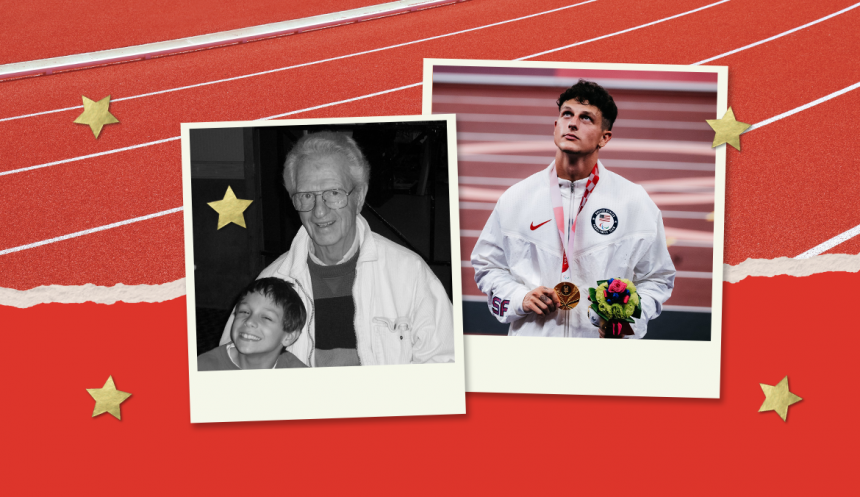Whether you have personal experience with Alzheimer’s disease in your family, have seen it from a distance, or have only read about it, one thing remains universally true: It is a heart-wrenching experience.
However, amidst the pain of dealing with this neurodegenerative disease, there are valuable lessons to be learned. Paralympic sprinter and four-time medalist Nick Mayhugh, who lives with cerebral palsy, found greater strength in his own life through witnessing his grandfather’s journey with Alzheimer’s. “As an athlete, I bring courage, determination, and inspiration to every competition,” he shares. “This resilience to overcome adversity is something I learned from my grandfather.”
When not training for his next competition, Mayhugh raises awareness for those living with Alzheimer’s and advocates for early discussions with healthcare providers at the first signs of memory issues. “I wish my grandfather could have seen me compete in the Paralympic Games,” he reflects.
Here’s what Mayhugh has learned about perseverance from his grandfather’s battle with Alzheimer’s disease, and what you can take away from it as well.
Living with an Invisible Illness Requires Courage
Alzheimer’s disease is believed to result from an abnormal accumulation of proteins in the brain, starting in the temporal lobes where memory is stored. This build-up, which can begin decades before symptoms manifest, gradually deteriorates memory and other crucial mental functions—all without outward signs of illness.
Dr. Julie Schwartzbard, a neurologist, explains, “Alzheimer’s is one of many conditions that isn’t visually evident. This discrepancy can leave patients and their families feeling isolated and misunderstood by their community.”
Mayhugh’s grandfather, a longtime radio host, initially displayed subtle Alzheimer’s symptoms. As his cognitive decline progressed, he became increasingly dependent on others, a challenging sight for Mayhugh. Similarly, Mayhugh’s own cerebral palsy diagnosis at age 14 caught his family off guard but instilled in him the power of perseverance drawn from his grandfather’s strength.
Resilience Is Essential
Caring for someone with Alzheimer’s, before or after diagnosis, can be emotionally taxing. Family members often face social isolation, financial strain, and declining health while providing care.
Mayhugh witnessed his family, especially his grandfather, exhibit resilience as the disease advanced. Despite memory lapses and other struggles, Mayhugh channeled his grandfather’s fortitude into his athletic pursuits.
“As an athlete with cerebral palsy, I know the importance of a strong start,” Mayhugh emphasizes. “That drive led me to win three gold medals at the Paralympic Games Tokyo 2020. I want those with Alzheimer’s to have a strong beginning by seeking early and accurate diagnoses.”
Advocacy and Early Intervention Matter
It’s common to dismiss Alzheimer’s symptoms as a part of aging. However, understanding the underlying causes of memory issues is crucial to identifying symptoms, seeking a diagnosis, and exploring treatment options promptly.
Reflecting on his family’s journey, Mayhugh wishes they had recognized cognitive changes earlier and advocated more for his grandfather. “Small details matter, so it’s vital to consult a doctor,” he stresses. Early discussions with healthcare providers could have provided more opportunities for informed decisions and cherished moments together.
Alzheimer’s presents challenges to patients and their loved ones, but the journey teaches invaluable lessons. Witnessing such resilience can empower you to face your struggles with greater strength and make the most of time with loved ones, as Mayhugh exemplifies.
Nick Mayhugh proudly collaborates with Eli Lilly and Company in supporting Team USA in Paris, demonstrating what’s achievable when we defy odds obstructing our goals.
To learn more about Alzheimer’s disease, visit morethannormalaging.lilly.com and sign up for the latest updates on memory and cognitive issues.






